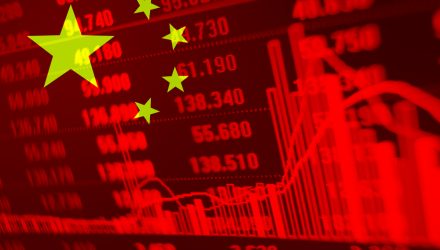China’s urban middle class is now spending trillions of dollars, potentially creating an opportunity for exchange traded fund investors to capitalize on the rising emerging market consumer base.
In the recent webcast, Investing in China: From Smart Phones to Smart Investments, Brendan Ahern, Chief Investment Officer, KraneShares, explained that China is well-positioned for continued economic growth. China has administered at least 1.5 billion doses of COVID vaccines so far. Assuming every person needs 2 doses, that’s enough to have vaccinated about 52.1% of the country’s population. The government’s goal is to have 1.2 Billion people, or 80% of the population, vaccinated by the end of the year. Meanwhile, China’s Gross Domestic Product expanded by 7.9% in the second quarter, and recent retail sales data beat expectations.
“We believe strong economic data could flow through to quarterly company earnings,” Ahern said.
Ahern also pointed out that global investors also believe in the ongoing China growth story, with foreign inflows into China’s Mainland equity market remaining strong. Foreign investors bought $34.37 billion worth of A-shares through the Hong Kong Stock Connect between the six months ended in June.
However, ongoing risks like geopolitical tensions, trade war fears, a regulatory crackdown on the technology sectors have all weighed on the emerging market.
While regulator concerns have been the main contributor to recent volatility, Ahern argued that this is only a short-term growing pain that is necessary to go through.
“Governments around the world are recognizing that regulation has not kept up with technology and have taken measures to regulate internet platforms. China is no exception,” Ahern said.
Ahern pointed to recent regulations in China that fall under four main categories: education, anti-trust, fintech, and data security. For example, they ensure that students have a more equal footing and that households are not burdened by expensive tutoring courses. Regulators are protecting the market environment and small businesses. Beijing has introduced more stringent capital requirements on fintech. Lastly, they are trying to eliminate misuse and misappropriation of personal information and safeguarding national cybersecurity.
“We continue to see companies adhere and adapt to regulation. Ministry of Industry and Information Technology just reported that 68 internet platforms including Baidu, Alibaba, Tencent, Bytedance, Sina Weibo, and iQiyi, have successfully completed rectification,” Ahern said.
“We believe these regulations will have a limited impact on internet firms’ financial health. Alibaba will report Q2 earnings on Tuesday, August 3rd.”
Ahern drew similarities between the current technology regulations and healthcare reforms in 2018, which also contributed to a short-term hit. The reforms upset the business models of China’s generic drug-makers, and the near-term impact on stock prices in the sector was severe.
“As the more positive impacts of reform started to take effect, the sector rebounded sharply, returning 104% from Jan 31, 2019, to July 27, 2021,” Ahern said. “Reforms gave birth to a highly productive biotechnology industry, which currently boasts a robust pipeline of world-class innovative drugs and treatments.”
After the recent tumult in the Chinese tech segment, Chinese internet companies are now trading at their most attractive valuation in five years. Specifically, the price-to-earnings of China internet companies now hover around 15.7, compared to their 5-year average P/E of 24.5. Meanwhile, China Internet earnings growth have been upwardly revised, and China technology growth is now offered at a discount compared to US internet growth.
To capture the opportunity in Chinese internet names, investors can look to the KraneShares CSI China Internet ETF (KWEB). KWEB seeks to provide investment results that generally correspond to the price and yield performance of a specific foreign equity securities benchmark, the CSI Overseas China Internet Index. The index includes an investable universe of publicly traded China-based companies whose primary business or businesses are in the Internet and Internet-related sectors.
ETF investors can also consider the KraneShares Bosera MSCI China A ETF (KBA) for a broader China market play. KBA seeks to provide investment results that correspond to the price and yield performance of the MSCI China A Index (USD). The underlying index reflects the large- and mid-cap Chinese renminbi-denominated equity securities listed on the Shenzhen or Shanghai Stock Exchanges (A-Shares) accessible through the Shanghai-Hong Kong Stock Connect or Shenzhen-Hong Kong Stock Connect programs.
Financial advisors interested in learning more about China can watch the webcast here on demand.

